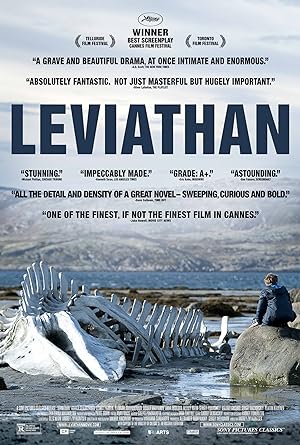Leviathan is a bleak, yet superb retelling of Job meets Naboth’s Vineyard set in Russia today. Think a restrained and beautiful Lars von Trier, but less pornographic and not misogynistic. Leviathan uses a family’s personal tragedy to illustrate long-standing state and church corruption when it serves itself instead of its people. It is my least favorite apocalypse-the personal apocalypse. Like the book of Job, most of the characters either believe that they understand God though they clearly don’t or don’t understand God and feel alone and despairing.
I am so jealous of Andrey Zvyagintsev for doing what I would love to do: take Old Testament stories and set them in the modern world. I love his depiction of the concept that God naturally speaks in images because He sees all. The director shows restraint by refusing to show the viewer or showing from a distance the story’s pivotal moments. Zvyagintsev leaves it for God to judge and for us to wonder what exactly happened. There are some excellent scenes in a decaying church with murals of Salome being handed the head of John the Baptist and the main character looking into the night sky where the dome should be in contrast to the final scenes where a bright white dome separates the congregation from the sky while saying that God sees everything.
There are many images of Leviathan in the film: the whale skeleton, the large creature swimming in the water when Lilya looks out, Hobbes’ Leviathan as illustrated in the real world-a strong, undivided government against nature, the explicit illusion to Job’s imagery in Job 41, and the implicit answer may be yes, you can, but there will be another one behind him. Leviathan seems to suggest that the struggle is eternal-both for the Leviathan to remain powerful and to temporarily defeat a singular Leviathan.
Stay In The Know
Join my mailing list to get updates about recent reviews, upcoming speaking engagements, and film news.





